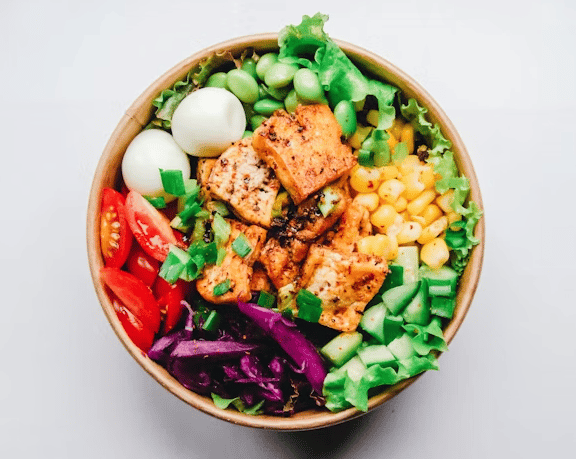How Your Diet Affects Your Mind: The Gut-Brain Connection for Mental Health
Can your food affect your mood? Discover the link between food, gut health, and mental well-being. Learn what to eat to feel better mentally and physically.
Dipin Bhattarai
4/18/20253 min read


What You Eat Affects How You Feel: The Gut-Brain Connection for Mental Health in Nepal
Science now confirms what our elders intuitively knew: the food we eat directly influences our mood, anxiety levels, and overall mental health. This powerful link is called the gut-brain connection, and it's especially relevant for us, given our rich and diverse culinary culture.
This isn't about strict diets or expensive superfoods. It's about understanding how the traditional Nepali food on your plate can be a key to your mental well-being.
The Science Made Simple: Your Gut is Your Second Brain
Your digestive system is home to trillions of bacteria, known as your gut microbiome. Think of them as a vast, diverse garden inside you. These bacteria don't just help digest food; they constantly communicate with your brain via the vagus nerve, producing chemicals that can dramatically affect your emotions.
A healthy, balanced gut garden produces feel-good chemicals like serotonin (over 90% of which is made in the gut!). An unhealthy gut, filled with "bad" bacteria, can promote inflammation and send stress signals to the brain, contributing to anxiety and low mood.
How to Nourish Your "Gut Garden" the Nepali Way
The good news? You don't need to look far to find foods that support gut health and, in turn, mental health in Nepal. Here’s how to harness the power of your local diet.
1. Embrace Fermented Foods (Probiotics)
Probiotics are the "good bacteria" you can add directly to your gut. Nepal is rich in traditional fermented foods:
Gundruk & Sinki: These are not just tasty side dishes; they are powerhouses of probiotics. Their fermented goodness helps diversify your gut bacteria.
Dahi (Yogurt): A staple in most Nepali homes, homemade dahi is an excellent source of live cultures. Have it with your meals or as a raita.
Kinema: A popular fermented soybean dish from the Limbu community, it's a fantastic probiotic source.
Tip: Add a small portion of these fermented foods to your daily dal bhat routine.
2. Feed Your Good Bacteria with Fiber (Prebiotics)
Prebiotics are types of fiber that act as food for the good bacteria in your gut. A diet rich in fiber helps them thrive.
Whole Grains: Our very own bhat (rice), especially caamal ko chaak (unpolished rice), is a good source. Also include makai (corn), jau (barley), and fapar (buckwheat).
Legumes: Daal (lentils) is the hero here! Every variety—masoor, moong, musuro—is packed with fiber. Don't forget other ghar ka daals like black gram (kalo daal) and chickpeas (chana).
Local Vegetables: Saag (green leafy vegetables), bandakobi (cabbage), pyaj (onions), lasun (garlic), and hariyo chillies (green chilies) are all excellent prebiotic choices.
3. Include Healthy Fats and Spices
Ghee: Traditionally made cow's ghee contains butyrate, a fatty acid that reduces inflammation and supports gut lining health. Use it in moderation.
Turmeric (Besar): The curcumin in turmeric is a potent anti-inflammatory agent that can soothe the gut and brain. It's in almost every Nepali curry for a reason!
Ginger (Aduwa): A classic remedy for an upset stomach, ginger also reduces inflammation and supports a healthy gut.
Foods to Limit for a Happier Gut (and Mind)
Just as some foods help, others can harm your gut garden.
Highly Processed Foods: Packaged snacks, instant noodles, and sugary drinks can promote the growth of bad bacteria.
Excessive Sugar: Too much chini (sugar) in sweets and drinks can fuel inflammation and negatively impact your mood.
Too Much Fried Food: While tasty, excessive puri, pakora, or sekuwa made with reused oil can be hard on your gut.
Putting It All Together: A Mind-Gut Friendly Thali
Imagine your perfect plate for mental wellness:
A central portion of unpolished rice (bhat)
A generous serving of daal
A side of saag or seasonal vegetables
A small bowl of dahi or achaar (pickle)
Flavoured with turmeric, ginger, and garlic
This isn't a foreign concept—it's the classic, balanced Nepali food plate our culture has always advocated for.
The next time you sit down for a meal, remember you're not just feeding your body. You're feeding the trillions of bacteria that influence your thoughts, feelings, and overall mental health. Choose foods that love you back.
Disclaimer: While diet plays a crucial role, it is not a substitute for professional medical advice, diagnosis, or treatment. If you are struggling with your mental health, please consult a doctor or a mental health professional.
What's your favorite gut-healthy Nepali food? Share in the comments below!
contact@manosansar.com
© 2025. All rights reserved by MANOSANSAR NEPAL.
📄 Quick Links:
🔹 About Us
🔹 Our Programs
🔹 Get Involved
🔹 Donate
🔹 Contact Us
🔒 Privacy Policy | 📜 Terms of Service
